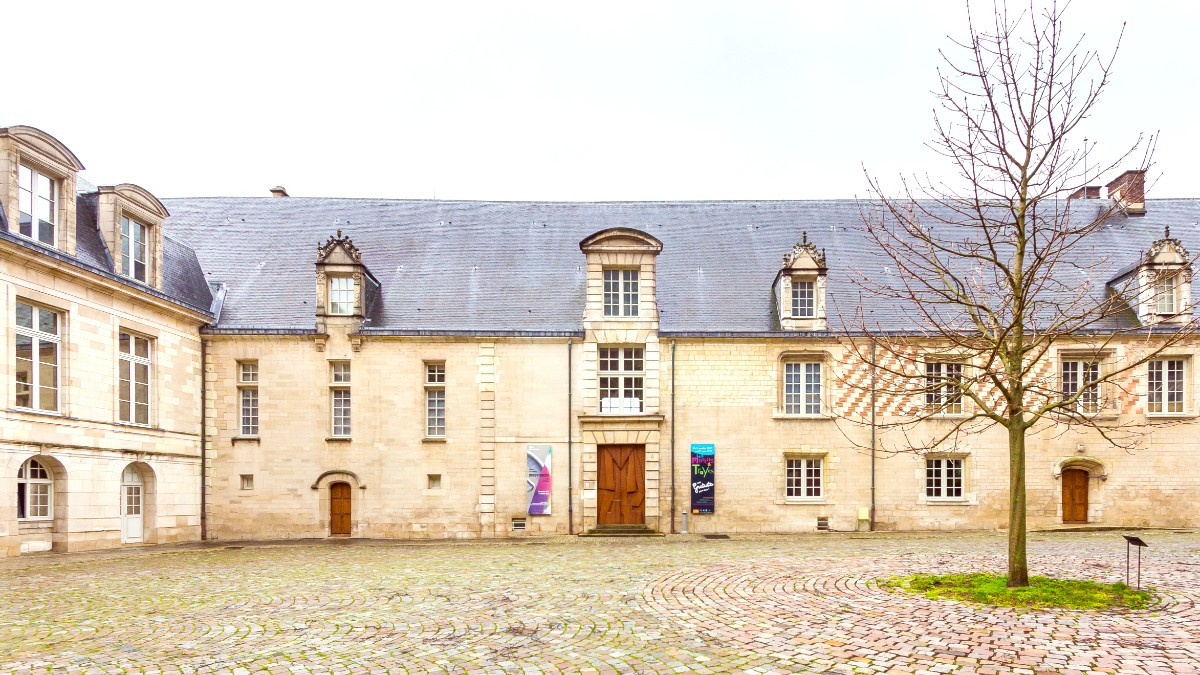
Champagne, France
Champagne's cuisine grew from its agricultural roots, where hearty dishes sustained farmers and winemakers.
Over time, as the region gained global recognition for its wine, the cuisine also evolved, incorporating sophisticated elements while retaining authentic character. Champagne is often not just paired with food but also used as an ingredient in sauces and recipes, contributing an unique depth of flavor. The focus remains on fresh, seasonal ingredients, ensuring dishes show the bounty of the land.
Beyond being the main beverage, Champagne is a recognized ingredient in local cooking, utilized to deglaze pans, in sauces, and even in desserts, bringing acidity and an unique flavor.
While Epernay is central, the broader Champagne-Ardenne region features its own specific culinary highlights. Reims, for example, is renowned for its pink biscuits (biscuits roses de Reims), delicate cookies traditionally dipped in Champagne, and a specific gingerbread.
Lunch (Déjeuner) typically from 12:00 PM to 2:00 PM. Many restaurants give a "menu du jour" (set menu) at lunchtime for excellent value. Dinner (Dîner) generally from 7:00 PM to 10:00 PM. Many restaurants close between lunch and dinner, often from 2:00 PM to 7:00 PM.
A specialty cured ham, unique to Reims but throughout the region. Traditionally served cold in thin slices, often as a starter. Discover it at local delis (charcuteries) or as an appetizer in traditional restaurants.
A delicate, flavorful cured ham.
This hearty, traditional dish features pig's trotters, slow-cooked until incredibly tender, often breaded and grilled for a crisp exterior. It signifies rustic, authentic regional cuisine. Find it in more traditional, regional restaurants.
A robust, traditional regional delight.
A delicate white sausage from Rethel, north of Reims. This fine sausage is often pan-fried until golden and served with apples or potatoes. It is a local delicacy, lighter than many other French sausages.
A lighter, refined local sausage.
Croissants, Pain au Chocolat: Classic French pastries, central for breakfast or a mid-morning snack, available at any boulangerie.
Tarte Tatin: A classic French dessert, an upside-down caramelized apple tart, often served warm with crème fraîche or vanilla ice cream.
For a sophisticated culinary experience, Epernay has some highly regarded options.
Epernay has a good selection of mid-range restaurants presenting quality French cuisine in comfortable settings.
For quick, economical meals.
Located in Epernay, this market hall is a focal point for food lovers. It operates on specific days, usually Wednesday and Saturday mornings. You can discover local produce, artisanal cheeses, fresh meats, poultry, and other regional specialties. It is an excellent place to gather ingredients for a picnic or observe local life. An outdoor market often runs alongside.
Good for fresh, local ingredients.
A few pizzerias and Italian restaurants available.
Limited options, usually Chinese or Vietnamese restaurants.
For quick, casual meals.
For a wider international variety, consider dining in Reims.
Very limited. Epernay does not have a significant demand for Halal dining. It is best to seek out specific international restaurants (e.g., a Halal kebab shop).
Consider self-catering with certified products.
Also very limited. Best to plan to self-cater using ingredients from supermarkets that might offer certified products.
Supermarkets might have some specialized products.
Major supermarkets (e.g., Carrefour, Leclerc) in Epernay will have a wider selection of specialized products (gluten-free bread, dairy alternatives) compared to smaller shops.
For severe allergies or specific restrictions, opting for self-catering accommodation gives the most control over meals.
Epernay's major annual event transforms Avenue de Champagne into a spectacle of light and sound. It features impressive light shows projected onto Champagne houses, street performances, musical acts, and numerous food and Champagne stalls.
While mainly a winemaking event (late September/early October), the grape harvest is also a major culinary period. Many local restaurants feature seasonal dishes celebrating the harvest, and local markets are abundant with fresh produce.
Some smaller villages might host local festivals celebrating specific Champagne vintages, offering tastings and local entertainment.
Always ask locals for their favorite hidden dining spots; they often know the best places for authentic experiences.
A local's suggestion is gold.
Don't hesitate to try the local "Menu du Jour" for value and regional flavors, often a multi-course meal at a fixed price.
Excellent value for a full meal.
Be aware of local meal times. Lunch typically 12-2 PM, Dinner 7-10 PM, with many places closed between.
Service charge is almost always included. Tipping extra is optional and for exceptional experience.
Be open to new flavors and culinary traditions. Some of the most delightful meals are found by trying something new.
Exploring food beyond the main restaurants brings a connection to Epernay.